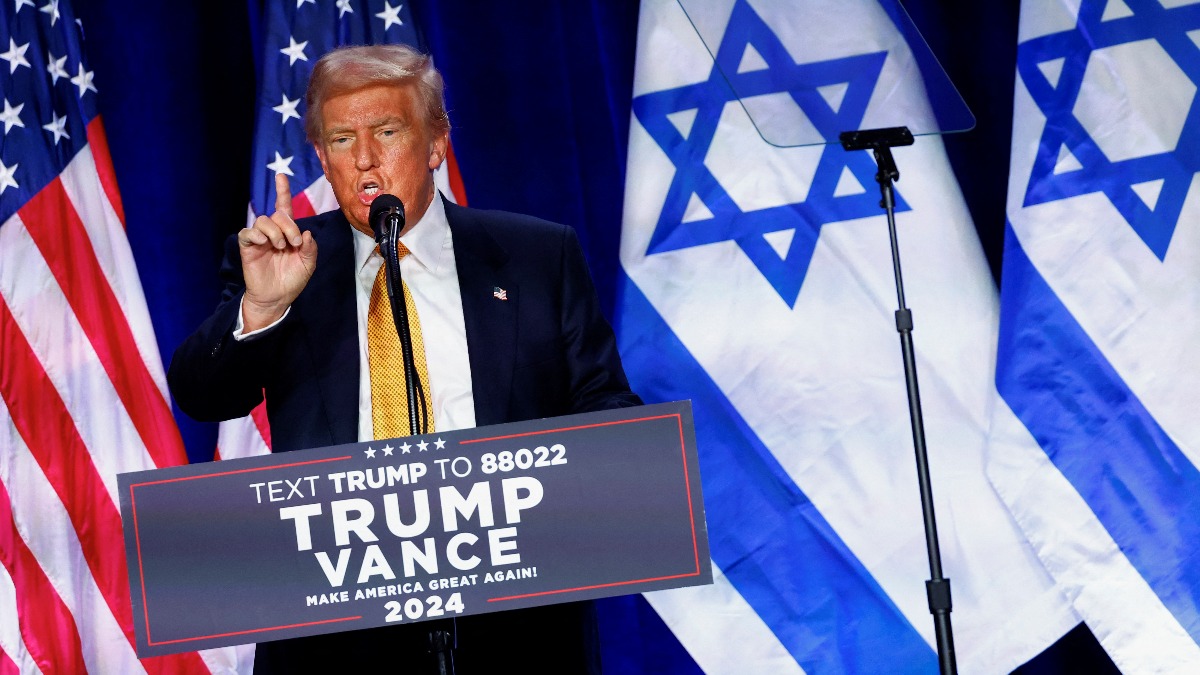In a recent statement, former President Donald Trump stirred up controversy by suggesting that Jewish voters could play a significant role in determining the outcome of the upcoming 2024 presidential election. Trump, who has been at the center of political discussions for years, implied that if he were to lose, Jewish voters might “have a lot to do with that,” a comment that has since ignited debate across the political spectrum.
What Did Trump Say?
During an interview, Trump remarked that his relationship with Israel and his administration’s policies benefitted the Jewish community, especially his recognition of Jerusalem as Israel’s capital and the signing of the Abraham Accords. He expressed frustration that despite these actions, he hasn’t always received the level of support from Jewish voters that he expected. His comments implied that if he loses the 2024 election, Jewish voters, in his view, would have been a contributing factor.
Why Are These Comments Controversial?
Trump’s comments were quickly met with backlash. Critics argue that singling out a religious or ethnic group in the context of election outcomes is inappropriate and could fuel divisive narratives. Many see his remarks as an attempt to place blame on a particular group of voters, which could exacerbate existing tensions.
On the other hand, Trump supporters view his comments as a reflection of his frustration over what he perceives as a disconnect between his pro-Israel policies and the voting patterns of Jewish Americans, many of whom historically lean Democratic.
The Political Landscape
Jewish voters in the United States have long been a key demographic, though their political affiliations vary. While Trump’s administration garnered significant support from some Jewish communities, especially more conservative or religious groups, a majority of Jewish Americans continue to align with the Democratic Party. Trump’s remarks underscore the complexities of voter behavior and the different factors that influence voting decisions.
For some, Trump’s policies on Israel were pivotal, but for others, domestic issues such as healthcare, immigration, and civil rights take precedence. His recent statements may be an attempt to rekindle support among Jewish voters by reminding them of his administration’s efforts, but the potential fallout from this could be significant.
How Are Jewish Leaders Responding?
The response from Jewish leaders has been mixed. Some, particularly those aligned with right-wing or pro-Israel advocacy groups, have shown continued support for Trump, praising his administration’s foreign policy accomplishments. Others, especially within progressive Jewish communities, have voiced concern over his rhetoric, fearing that it may foster division and play into harmful stereotypes.
In a broader sense, Trump’s comments tap into the complex relationship between identity politics and electoral outcomes, raising important questions about how different communities are perceived and addressed by political figures.
Final Thoughts
As the 2024 election approaches, Trump’s comments about Jewish voters add another layer of complexity to an already charged political environment. Whether his remarks will influence voter behavior remains to be seen, but they have certainly sparked discussion about the role of identity, loyalty, and expectations in American politics.
With the election still months away, the debate around Trump’s comments is likely to continue, especially as both parties work to secure key voting blocs in what promises to be another closely watched and highly contested race.

